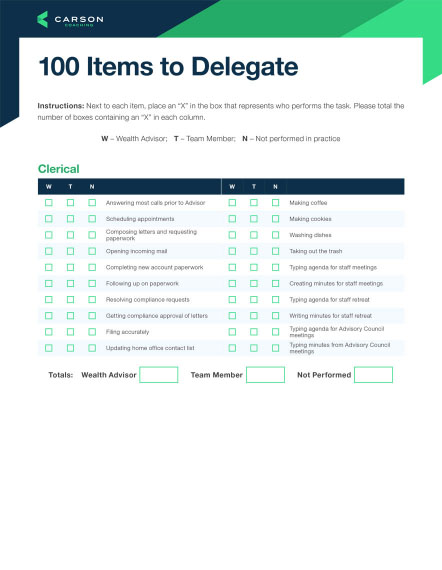“It’s not what you said, it’s how you said it.”
Have you ever been on the receiving end of this statement? I certainly have. And it’s a reminder that there’s much more to effective communication than just the words we say.
The Corporate Finance Institute notes that effective communication can help you in all aspects of your life, and a lack of communication skills can lead to misunderstandings and lower productivity.
With that said, who wouldn’t want to improve their communication skills? If you’re looking for some quick tips to immediately do that – both at work and at home – this blog is for you.
1. “90% of the game is half mental.” – Yogi Berra
Yogi Berra was known for composing amusing statements to spread solid wisdom. Humor aside, Berra’s quote reminds us that a high percentage of your ability to communicate effectively comes down to your own psychology. You must master your mind to master your communication skills.
How can you master your mind? Feed it every day! Just like your body needs nourishment to survive and thrive, your mind needs its own kind of nutrition. Our minds need a steady, consistent diet of positive, uplifting, encouraging, educational content. Read or listen to inspiring books, listen to uplifting podcasts and watch encouraging videos online.
If your mind is dragged down by negativity, fear and pessimism, you won’t be in the optimal state to succeed as an effective communicator. Train your brain to stay filled with hope and optimism, and that attitude will show up in how you communicate.
2. “When people talk, listen completely. Most people never listen.” – Ernest Hemingway
Oftentimes, people hear communication and the first thing they think of is speaking, but the best communicators are typically the best listeners. Obviously, speaking is a key component of effective communication, but it’s only one ingredient of the entire recipe. Work on listening, and you’ll start to improve your communication.
In every interaction, make listening to the other person your top priority. Decide that you care more about keeping your mouth closed and ears open than you do about saying something magical. A good rule-of-thumb ratio to follow is 90/10: spend 90% of the conversation listening and 10% or less) speaking.
The first step to becoming an effective listener is becoming someone who is very comfortable not speaking as much in a conversation. Eventually, as you invest more time listening, you’ll become better at listening. Give yourself time to practice this art!
3. “The most important thing in communication is to hear what isn’t being said.” – Peter Drucker
This is what I call next-level listening. When you can start to notice what’s not said, you’ve gone to a higher level of effective communication. This requires incredible intentionality and focus. And you can do it! First, you must decide that you want to be a great communicator. Next-level listening is one of the more challenging skills to develop. To know what is not said, you need context.
Let’s look at an example: Imagine you’re talking with a friend who is complaining about a difficult situation at work. Your friend complains about his boss being too demanding and expecting too much. He says no one understands his genius and the gifts he can offer to the company. He tells you how leadership isn’t making great decisions and he’s worried about the direction of the company. What has your friend not said? He hasn’t mentioned anything about what he’s doing about the situation. This is an incredibly simple example, yet it’s something that happens often.
People oftentimes only talk about one side of a two-sided coin. They talk about how terrible things are, yet they won’t admit to their part in the situation. They’ll talk about how amazing one area of life is – like their professional career – but won’t talk about the difficulties in their marriage. When you notice someone talking endlessly about one topic or one area of life, notice the other areas or aspects of life they aren’t mentioning.
Next-level listening is much more of an art than a science. You’ll have a chance to make its acquaintance the more you invest in listening to other people. Next-level listening is challenging to develop partly because there’s almost an unlimited number of other topics or ideas the person could be talking about related to the situation and you need context. As such, it’s a skill used when you already know someone – a teammate at work, a family member or a friend – because you’ll have that broader context and deeper insight into the person and their life.
One final example in a business context: Imagine a prospective client talking about how they believe your fees are too high. They talk endlessly about how expensive your services are. What are they not talking about? They’re not talking about the value that you deliver to your clients.
When you notice this, it’s a great time to reframe the conversation from fees and “being expensive” to value and service. You can ask something like, “I’m hearing you talk about our fees being high. For a moment, let’s set that aside, if that’s OK. What value do you see in the services we could potentially provide you and your family?” Again, there are two sides to the coin of a business relationship: One side is the value of the services provided, and the other side is the price associated with delivering that value.
Simply begin realizing that there are several sub-topics that are being discussed or shared in any given conversation. And if you remember this in every conversation, you’ll open your mind to start noticing all the things that could be said and therefore identify what’s not being said.
4. “Communication is one of the most important skills you require for a successful life.” – Catherine Pulsifer
It’s easy to feel above average as a communicator. Studies find that most people think they’re above average at most things – it’s called the superiority illusion. Did you catch that? But statistically speaking, it’s impossible for most people to be above average at anything. Communication is no different. If you assume you’re better than the average communicator, you might not give it the attention it deserves in order to improve. But if you remind yourself of the vital importance of communication for your success in life, you’ll pay the attention it takes to improve.
One effective strategy for personal and professional growth is to choose only two to three specific skills to work on at a time. For example, you might decide that this month, the professional development skills you need to improve first are your communication and leadership skills. Write yourself a note – on a notecard or sticky note that can sit near you on your desk – to remind yourself why you want to develop these skills. It might be you want to develop your communication skills to earn a promotion at work so you can have greater responsibility, impact and income. Additionally, you might realize that your close personal relationships are hurting because of your lack of communication skills, so you want to develop your ability to communicate so you can improve those important relationships.
Samuel Johnson, an author from the 1700s said, “People need to be reminded more often than they need to be instructed.” Remind yourself every day that you want to work on your communication skills, and you’ll be more intentional with seeing every interaction as an opportunity to develop this skill set.
5. “The single biggest problem in communication is the illusion that it has taken place.” – George Bernard Shaw
This is one of my favorite quotes on communication. Too often, people think they’ve communicated because they’ve spoken. An important thing to remember is that what you say is rarely what is received. Communication is the full process of one person sending out a message and the other person or people receiving the message and interpreting it for themselves based on their world views. Interestingly, I find it most helpful to assume that the other person didn’t receive the message I was intending to send.
Why do I find this approach helpful? Well, what would you do if you assumed the other person didn’t receive the message you intended to send? You’d ask for confirmation! Ask what they heard. You can ask something like, “I’m just curious, of everything I just said, what did you hear?” When you ask this question in an important conversation, the other person should appreciate that you care enough to ask how your message landed with them.
By the way, ensure you ask in a sincerely curious way. Don’t ask in a way that makes the other person feel you’re pressing them to see how much they were listening. Your intent is only to gain your own understanding of how your message was interpreted by the other person.
Model Success Beyond the Words
Much research has been done on the importance of non-verbal components of communication. Regardless of which body of research you review, it’s quite evident that tonality of voice and body language carry at least as much weight as the words themselves in any given communication.
How much time do you invest thinking about your tone of voice and body language when you communicate? I’d suggest that if you want to become a great, effective communicator, you need to start teaching yourself to use your vocal qualities and body language to your advantage.
If your voice and body language aren’t working for you, then they’re working against you.
One of the most effective ways to improve your own communication skills is to observe and model the communication style of people who you feel are effective communicators.
How do they use their voice? What facial expressions do they make and at what moments? How do they position their arms and legs and body in a conversation? People who are incredible, masterful communicators are typically intentional about every aspect of how they communicate and interact with others. When you find these people, watch them closely.
The Big Takeaway: Stay Positive
I tend to find that a more upbeat, positive tone of voice makes conversations go well. People will feel the energy and emotions you exude when you communicate, so decide what energy and emotions you want to communicate.
Do you want others around you to feel upbeat, positive, joyful, cheerful, happy, fun and playful? Then ensure that you feel this way! Whatever you feel, you will communicate.
If there’s one single thing you take from this blog, let it be that people will feel whatever emotions you’re feeling when you communicate. Before walking into an important conversation, ensure that you’re ready to show up with the emotions you want to transfer to the other person. This is likely the most important decision you’ll make in your entire communication strategy.


